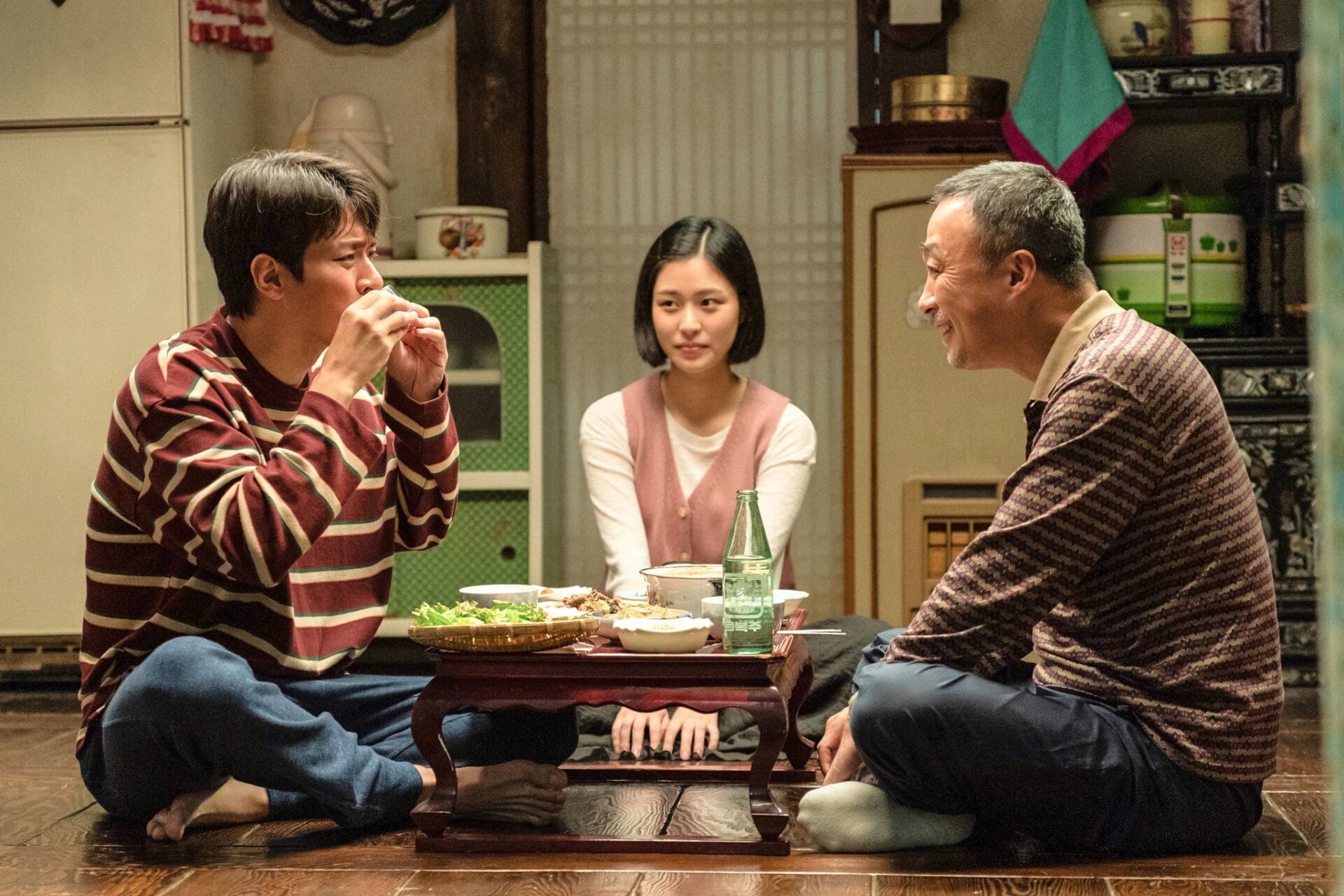China Warms Up To Big Tech But Stays Cool On Hollywood

While Streamlined doesn’t want to focus too much on any one market, there are several questions swirling around China that impact the global content industries and would be good to address before Cannes gets underway. This week’s edition of Streamlined will touch on two of these issues – Beijing’s clampdown on Big Tech and Hollywood films in China – as they’ve been in the news this week. Next week’s edition will look at the participation of Chinese films at international film festivals and the Chinese industry presence in Cannes.
Another burning question – what is China’s zero-Covid exit strategy – was definitively answered by Chinese president Xi Jinping yesterday. There is no exit strategy. China is doubling down on zero-Covid, which for people in some parts of China means severe lockdowns, daily PCR testing and restrictions on movement. For the rest of the world, this means several months of economic and global supply chain disruptions. Nothing is likely to change until the National Congress of the Chinese Communist Party (CCP) in October/November at which Xi is expected to a secure a precedent-breaking third term.
Also this week in Streamlined: Myanmar producer Ma Aeint is sentenced to three years in prison; Cannes Marche to spotlight India; Paramount+ sets more global launch dates; Purin Pictures’ latest funding round; and award winners from Jeonju and FEFF.
1. Is Beijing really easing its clampdown on Big Tech?
At the end of last week, reports in Asian media suggested that Beijing was prepared to ease off on it punitive ‘rectification’ of China’s tech giants, which has involved large antitrust fines for companies including Alibaba, Tencent, Baidu and Bytedance, and more stringent regulations on everything from algorithms and data security to consumers’ use of internet and gaming platforms.
The crackdown, which started in late 2020 when Beijing blocked Alibaba’s planned IPO of its Ant Financial affiliate, has wiped an estimated $1.5 trillion off the value of Chinese tech stocks and resulted in a string of tech bosses, including Bytedance’s Zhang Yiming and Kuaishou’s Su Hua, following Alibaba founder Jack Ma’s lead in quietly stepping down from their companies. The knock-on impact for China’s content industries has been huge as companies like Alibaba and Tencent are laying off tens of thousands of workers and cutting back on investments in streaming and content production.
But the tech giants may now be getting a reprieve, if not a full pardon, as Beijing recognises the role these companies can play in propping up an economy that is increasingly battered by Covid lockdowns, the war in Ukraine and now US Fed rate hikes. The Cyberspace Administration of China (CAC) is expected to host a symposium with tech companies, including Alibaba, Tencent, Meituan and Bytedance, in early May to discuss “healthy development” of internet platforms, leading to speculation that there will be a moratorium on massive fines and new regulations. In return, the Chinese government is expected to take a 1% stake in these companies and have more say in their decision-making.
While the timing of that symposium remains unclear (China had a national holiday April 30-May 4), a leading CCP mouthpiece, Economic Daily, ran a front-page editorial on Thursday (May 5) echoing the need for the moratorium: “The platform economy is also of great significance to China’s economic development, and has played an irreplaceable role in stabilising growth, safeguarding jobs and promoting development,” the editorial said. “How long the positive market mood can last depends on when and how strong the specific support measures are rolled out. Relative departments need to make it happen soon and ensure that platforms can focus on development and get their energy back.”
A story in the Wall Street Journal last week quoted sources suggesting that Chinese tech leaders may be quite happy to let the government take a stake in their companies and/or a seat on their boards, as it would help them manage political risk. An op-ed in The Washington Post argues that it was exactly that level of policy risk that encouraged Chinese tech companies to innovate in the first place.
But whatever the outcome of the symposium, it’s unlikely that companies like Alibaba, Tencent and Bytedance will be off the hook for long. Beijing is not thought to be anti-tech, but does appear keen to redirect investment away from software and platform companies towards strategic industries like semiconductors, batteries and biotechnology. Harvard technology researcher Kevin Klyman argues in an op-ed in The Diplomat that China’s tech crackdown could even give it a global advantage in the long run. After all, US and European governments are also grappling with how to regulate monopolistic tech giants that squeeze gig workers and consumers, and are likely to take many wrong turns along the way. Global film and TV industries will not be immune from the regulatory fallout.
2.Why is Hollywood still having such a hard time in China?
Doctor Strange In The Multiverse Of Madness looks like the latest Marvel tentpole to be shut out of China, following Eternals, Shang-Chi And The Legend Of The Ten Rings and Spider-Man: No Way Home. According to Matthew Belloni writing in Puck, the latter film didn’t get a release because Sony refused to remove images of the Statue Of Libery, which Chinese censors deemed too patriotic. The issue with Doctor Strange is a ‘blink-and-you-miss-it’ shot of a newspaper kiosk advertising The Epoch Times, a publication affiliated to the Falun Gong, a religious movement that is banned in China and is strongly anti-CCP.
Much has already been written about why China is limiting the distribution of Hollywood movies, and why those that do get released are under-performing, with many theories related to souring US-China relations and comments made by various US-based actors and directors. But the problem does not seem to be specific studios, filmmakers or even nations. Disney and Sony, which distribute the Marvel movies globally, have both had other films imported into China recently, including Death On The Nile, Encanto and Uncharted. The problem seems to be with the Marvel movies themselves.
And the problem that the CCP appears to have with Marvel is the same it has with the Falun Gong, a movement with Buddhist and Taoist roots, which by various estimates at its height had around 40-100 million followers. CCP smears aside, it does appear that the Falun Gong has some odd beliefs – founder Li Hongzhi has reportedly made worrying comments about aliens living on earth and condemning the mixing of races, and The Epoch Times is a far-right publication that has been involved in promoting conspiracy theories, including QAnon and anti-vaccine misinformation. But the CCP’s issue with the movement is that it’s just potentially way too popular and influential amongst the people of China.
Marvel movies are also way too popular and influential. Avengers: Endgame is the highest-grossing foreign film of all time in China, and the seventh highest-grossing overall, with a take of $640m, putting it squarely in the big league of Chinese movies with the “correct messaging” such as The Battle At Lake Changjin, The Wandering Earth and Wolf Warrior 2. We don’t see another US film pop up in the all-time top 20 until The Fate Of The Furious, which took $403m to rank at number 17. More than any other US films, the Marvel movies encapsulate American soft power and Western values, as opposed to Chinese values, and threaten to detract attention away from the messaging of the CCP.
Amidst all the talk of trade and tech wars that have impacted the US-China relationship, the ideological repositioning in China since Xi consolidated power is often overlooked. A recent op-ed in CCP mouthpiece The Global Times, commenting on the poor performance of US releases including The Batman, Moonfall and Uncharted, embodies this thinking. The piece quotes Shanghai Film Association vice chairman Shi Chuan, saying: “Chinese no longer believe in US heroes in their stories. In the current international context, we don't seem to need this kind of salvation, let alone fully identify with what they value.”
And to underpin this messaging, China has legions of nationalistic online warriors, known as ‘Little Pinks’, who will happily scour any Hollywood release looking for trouble, with the Marvel movies a particular target. China has never outright banned any Marvel movie, it’s just not given them a release date, and there’s no need to take a position when you can rely on the online masses to do the cancelling for you. Of course, this is not an issue unique to China – India has a similar problem with the IT Cells of the right-wing BJP party, and it’s something the West will have to think about especially hard as Elon Musk takes control of Twitter.
As for the other US films that do get released in China and yet still flop, it has been impossible to tell whether this is due to genuine audience apathy or political messaging, even before the current Covid outbreaks when cinemas were mostly open. It may just be a growing disinterest in anything that happens outside of China – the country has effectively been shut off from the rest of the world for more than two years now, so maybe it’s not surprising that stories from overseas don’t engage. The litmus test will be when there’s a genuine hit of a foreign film from somewhere other than the US – a repeat of the success of Lebanese drama Capernaum, which grossed $53m in 2019, a Japanese anime perhaps, or an Indian or Korean film, which have only recently been allowed back into the market.
In the meantime, China’s box office is atrophying due to cinema closures and a lack of new releases. The recent May Day holiday weekend brought in $24.5m, the biggest weekend in two months, but a fraction of what takings usually are over this period. Downton Abbey: A New Era is scheduled for release on May 20, but there is no sign of Doctor Strange, Top Gun: Maverick or any other Hollywood tentpole on the horizon. This doesn’t mean they definitely won’t get released – revenue-sharing films are usually only given a few weeks notice before they open. But China has made it clear that ideology will trump commercial concerns in the film market, at least until the National Congress in November.
IN OTHER NEWS…
Myanmar producer Ma Aeint jailed for three years
- Variety had a story on the sentencing of Myanmar film producer Ma Aeint to three years in jail, with hard labour, on charges of “causing fear, spreading fake news or agitating against government employees”. The producer of Maung Sun’s Money Has Four Legs was arrested last year, in the wake of Myanmar’s military coup, and has been held in Yangon’s notorious Insein Prison for several months awaiting sentencing, during which time there have been worrying reports about the state of her health.
India named as country of honour at Cannes Marche
- India will be the official country of honour for the Cannes Marche du Film 2022, a year in which the country celebrates its 75th year of independence, and the Cannes film festival celebrates its 75th anniversary. In addition to the Marche’s India-themed opening night party (May 17), the country will be showcased through a range of market activities, including an India Forum panel discussion (May 19); Film Bazaar Goes to Cannes pitching sessions (May 21); and world premieres of a selection of Indian films at the Olympia Cinema. These will include Rocketry: The Nambi Effect, the directorial debut of Indian actor R. Madhavan, in which he stars as Indian aerospace engineer Nambi Narayanan. The Cannes film festival is also recognising India by programming Shaunak Sen’s documentary, All That Breathes, in Special Screenings and a restored version of Satyajit Ray’s Pratidwandi (The Adversary) in Cannes Classics.
LAB & FUNDING NEWS:
- Bangkok-based film fund Purin Pictures has announced the five projects that will receive grants in its spring 2022 funding round, including the first animated feature that the fund has supported, rotoscope horror-fantasy The Missing, directed by the Philippines’ Carl Joseph Papa. Also receiving support are two documentaries – Magnetic Letters, from the Philippines’ Demie Dangla, and One Big Sumba Family, from Indonesia’s Tonny Trimarsanto – along with two narrative features, Sorayos Prapapan’s Arnold Is A Model Student (Thailand) and Daniel Hui’s Small Hours Of The Night (Singapore).

PRODUCTION NEWS:
- Peacock announced that John Woo will be directing an English-language adaptation of his 1989 action hit The Killer for the platform, news that was greeted with some consternation by fans of the Cantonese-language original, which starred Chow Yun-fat as an assassin atoning for the accidental blinding of a nightclub singer during a hit. The project is one of three films that Peacock is working on with Universal Pictures, along with LeBron James’ Shooting Stars and producer Will Packer’s musical dramedy Praise This, which are scheduled to headline the streaming service in 2023. An English-language remake of The Killer has been floating around for years with Lupita Nyong'o attached at one point in the Chow Yun-fat role. Woo is currently shooting revenge action pic Silent Night starring Joel Kinnaman for Capstone Studios and Thunder Road Films.
- Variety had an exclusive on Sony Pictures International Productions acquiring film adaptation rights to Indian writer Chetan Bhagat’s 2016 novel One Indian Girl, which it is planning to develop as a Hindi-language film. Bhagat’s books have previously been adapted into films including 3 Idiots, 2 States and Kai Po Che.
CURATED:
- Miracle: Letters To The President, directed by Korea’s Lee Jang-hoon, was awarded the Golden Mulberry, the top audience award of the Far East Film Festival (FEFF, April 22-30) in Udine, Italy, while second and third place went to two Chinese films – Li Ruijun’s Return To Dust and Xing Wenxiong’s Too Cool To Kill – which both took multiple awards at the festival.

- Canadian filmmaker Jacquelyn Mills’ documentary Geographies Of Solitude was awarded the Grand Prize in the international competition of Korea’s Jeonju International Film Festival (April 28 - May 7), while Jeong Ji-hye’s Jeong-sun took the Grand Prize in the Korean competition. Screendaily attended the festival and has the full report on the award winners here.
SOLD:
- Screendaily also had an exclusive on Paris-based Luxbox selling French-Tunisian director Erige Sehiri’s Under The Fig Trees to the Middle East and France. The film will receive its world premiere in Directors Fortnight at Cannes.
STREAMING UPDATES:
- Paramount Global announced that its Paramount+ streaming service will launch in South Korea in June, in a previously announced partnership with Korea’s CJ ENM, and in India in 2023 in partnership with local media group Viacom18. It will also roll out in the UK and Ireland on Sky platforms on June 22, with launches in Italy, Germany, France and Austria planned for the second half of the year. Viacom18 is a joint venture between Paramount Global and Mukesh Ambani-controlled broadcaster TV18. Last week, James Murdoch and Uday Shankar’s Bodhi Tree Systems announced it would be pumping $1.78bn into Viacom18 as its ramps up its streaming services to compete with the merged operations of Sony and Zee Entertainment and the Indian services of Disney+ Hotstar, Netflix and Amazon.
AND FINALLY....
- In perhaps the biggest story of the week (at least in social media engagement terms), Korea’s culture minster has proposed that globally recognised male pop stars, here’s looking at you BTS, will be allowed to skip the country’s mandatory two-year military service and partake in activities less hazardous to their international tour dates and aesthetic appeal. Korea currently allows global award-winning athletes and classical musicians to do alternative service in their respective fields. While this will come as good news to legions of K-pop stans, concerned about the imminent call-up date of Jin, the oldest member of BTS, it was met with some displeasure by less famous Korean 20-somethings facing a stint in the military.




